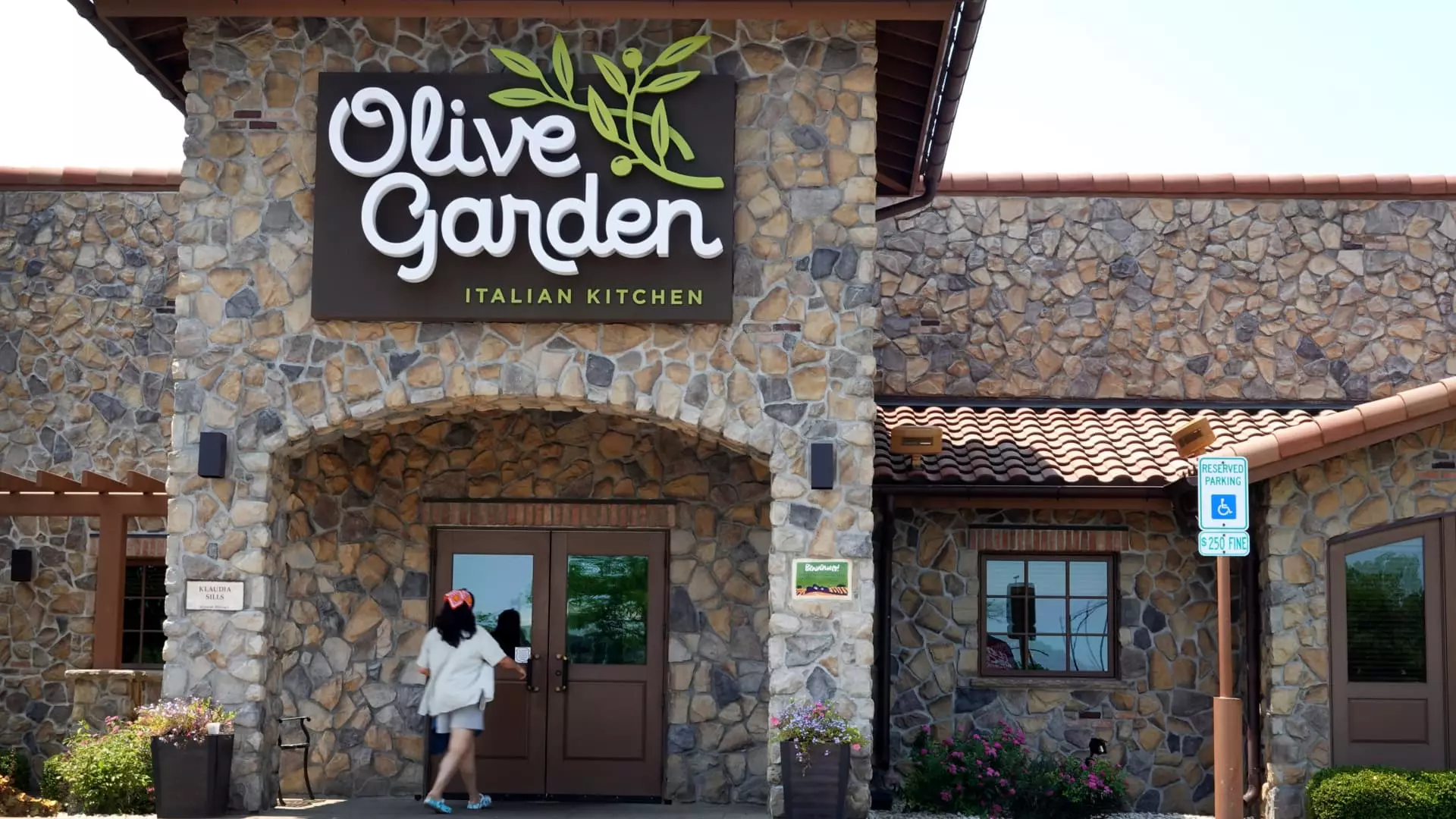Darden Restaurants faced a challenging first quarter as it reported earnings and revenues that fell below expectations. The company, known for popular chains such as Olive Garden and LongHorn Steakhouse, experienced sales declines primarily stemming from weakened customer engagement at its flagship brands. For the quarter ending August 25, Darden’s earnings per share reached $1.75, slightly below the projected $1.83. Revenue also missed forecasts, totaling $2.76 billion against an expected $2.8 billion. Despite these setbacks, a notable 10% increase in the company’s shares in premarket trading illustrates the market’s complex response to Darden’s performance and future outlook.
In light of the disappointing quarter, CEO Rick Cardenas expressed unwavering confidence in the company’s long-term viability. He emphasized that, although immediate results did not align with company expectations, the fundamental strengths of Darden’s operations remain intact. Cardenas highlighted the ongoing efforts of brand teams to address customer needs without sacrificing the business’s long-term health for short-term gains. This statement may reflect necessary transparency and reassurance for stakeholders amidst declining sales metrics.
The figures paint a stark picture of consumer behavior across Darden’s core offerings. Notably, Olive Garden reported a 2.9% drop in same-store sales, raising concerns about its competitive positioning. To counteract this trend, the chain plans to reinvigorate customer interest by reviving its popular Never Ending Pasta Bowl campaign, a strategic move aimed at drawing back patrons who may have strayed. In contrast, LongHorn Steakhouse emerged as a relative standout, achieving a 3.7% increase in same-store sales. This divergence within Darden’s portfolio underscores the varying consumer preferences in the dining landscape, requiring tailored strategies for each brand.
Darden’s troubles are not isolated; they appear indicative of broader economic struggles. Consumer spending patterns are evolving, shaped by inflationary pressures and changing dining habits. As the company recalibrates its brand strategies, the challenge will be to capture the evolving tastes and expectations of diners. The decline in restaurant traffic, particularly in July as noted by CFO Raj Vennam, reinforces the need for adaptive operational strategies and marketing initiatives.
Despite facing hurdles, Darden maintains an ambitious outlook for the fiscal year. The company aims for full-year earnings per share ranging from $9.40 to $9.60, along with projected net sales between $11.8 billion and $11.9 billion. This optimistic forecast illustrates Darden’s determination to overcome the current challenges through strategic initiatives and customer-focused innovations.
While Darden Restaurants confronts a complex array of challenges, its management remains upbeat about rediscovering growth opportunities. By addressing customer feedback and leveraging successful strategies from its more resilient brands, Darden could navigate the current market dynamics. The road ahead may be rocky, but with a solid strategic foundation, Darden is poised to reclaim its standing in a highly competitive restaurant industry.

